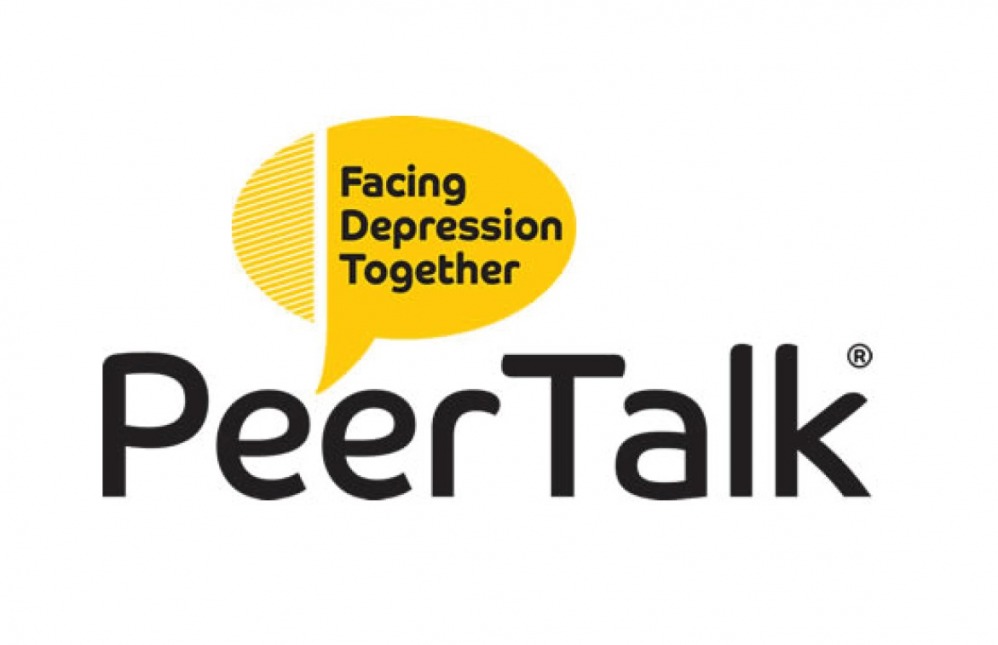PeerTalk Are Supporting People in Hard Times

World Mental Health Day falls on 10th October
PeerTalk are a national charity that offer peer support to anyone over 18 experiencing stressful times, depression, anxiety or any emotional distress. Their support groups (two of which are held in Whitley Bay and Gateshead) offer a safe space for people to offload, be heard and receive support from others in similar situations.
‘They’re friendly, welcoming spaces where it’s okay to talk, and where others listen without judgement and offer understanding, empathy and practical tips and advice too,’ says Rosa Trelfa, director of operations for the charity. She says the best part of her job is ‘connecting with people’ and her role is to keep the groups going. ‘I also facilitate a few of the groups, which I love doing,’ she adds. ’It’s a privilege to bear witness to people’s experiences and inspiring to see them move through difficult times.’
The need for mental health support is widespread. ‘There isn’t a town or city in the country that couldn’t use this sort of support,’ Rosa explains, which is why future support groups are being discussed for our region. ‘One of our trustees is a psychiatric nurse consultant in the North East and recognises the value of peer support and what it can offer to those facing tough times. It’s good to have her professional support – the need is very much there.’

PeerTalk help simply through the power of listening. The team often hear that people find it difficult to talk to those close to them because they don’t want to worry them, or they might be afraid of feeling like a failure. ‘Yet people’s struggles are very real,’ Rosa says. ‘At our support groups, when someone shares, we listen, and accept where they are as they are. There’s no judgement. Other attendees understand and sometimes relate to each other’s experiences. They offer support, perhaps things that helped them in a similar situation. One thing that people express time and time again is a sense of relief, that they’re not the only ones feeling that way, that others “get it.” They feel somehow lighter and not alone. The mutual understanding and support can really make a difference.
‘When people feel that they’re not on their own, when they feel that someone understands, it’s a little easier to move forward.


It’s also a space where people’s distress isn’t dismissed or belittled. We know that people’s distress is real, no matter what it is. We also know that there’s a way through it – we’ve seen it happen at our groups, and that gives hope to others.’ However, it must be remembered that this is support, not treatment. ‘Our focus isn’t necessarily to fix people, but rather to offer them a space where they can share, be heard and supported,’ Rosa adds.
Lockdown brought its challenges to PeerTalk. ‘For many, the support services that were there for them before the pandemic were reduced or changed to remote communication, which has sometimes left our attendees feeling even more isolated,’ Rosa admits. ‘Some have missed the human connection, whilst others have felt safer staying at home – it’s affected people in different ways. I guess the challenge has been to let people know that we’re still here, meeting face-to-face, taking precautions to keep everyone safe, offering support through these difficult times.’
Loyal volunteers have worked hard to keep PeerTalk running, and Rosa says ‘we couldn’t do what we do without them.’ Looking to the future, she hopes they can continue to offer much-needed support across the region and beyond. They meet every week. The groups are free to attend, and there are no waiting lists. People don’t need to register or book, they can simply go along.
‘We’d obviously love to increase our number of groups, but as a small charity this is entirely dependent on funding,’ Rosa explains. ‘The good will is out there in abundance in terms of volunteers, but in order to do the job well, we need the funds to recruit, train volunteers, address room hire costs – the list goes on.’

Want to support PeerTalk? You can help in a variety of ways. Firstly by sharing the word or raising funds. If you live near to where one of the support groups are run, you might also consider becoming a volunteer facilitator.
For more information, to volunteer or to help raise funds head to peertalk.org.uk.







